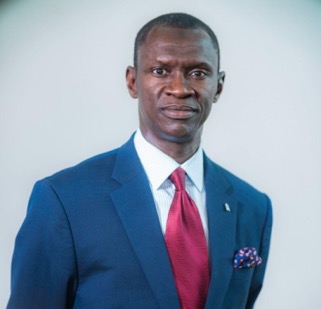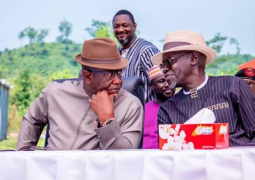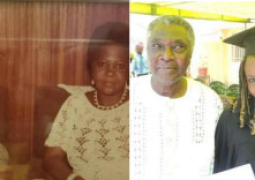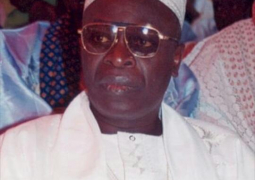
In the ever-evolving world of politics, many leaders begin their journey with integrity and noble intentions. They come armed with vision, patriotism, and a sincere desire to uplift their people. But somewhere along the way, their light is dimmed. Their resolve weakens, their ideals wear away, and they ultimately become captives of the very system they sought to reform. One of the most pernicious forces responsible for this transformation is the quiet, debilitating power of “The Mafia”, those shadowy figures who orbit power, manipulate authority, and bleed nations dry in the name of personal gain.
These mafias are not always criminals in the conventional sense. They are often professionals, seasoned strategists, business tycoons, spiritual leaders, community elders, extended relatives, and former officials who have mastered the art of influence. They work behind the scenes, unaccountable to the electorate, yet with more power than many ministers. Their key objective is never the public good. It is personal preservation, wealth accumulation, and protection of their family legacy at all costs. And when a new leader emerges, they are among the first to offer allegiance, not for ideological alignment or national unity, but to protect the spoils of yesterday.
As the philosopher Eric Hoffer once observed, “every great cause begins as a movement, becomes a business, and eventually degenerates into a racket.” That is precisely what the mafia does i.e. it transforms governance from a sacred public trust into a private racket.
The mafia does not seek office, vote, or campaign. Instead, they wait for the results. Once a leader is elected, especially one with a reformist spirit, they begin their infiltration. They present themselves as indispensable gatekeepers, offering advice and protection, and promising access to old networks and institutions. But soon enough, they begin to manipulate. They exploit personal weaknesses, deepen dependency, and position themselves as the sole compass of decision-making. Their whispers become louder than the voices of the people. And just like that, national agendas are replaced with private ambitions.
The most troubling reality is that these mafias have no loyalty to any administration or ideology. Their allegiance shifts seamlessly from one regime to the next, from one president to his/her successor. Yesterday, they were revolutionaries. Today, they are conservatives. Tomorrow, they will rebrand as pan-Africanists or nationalists, whatever narrative best secures their seat at the table. They lack a national compass because their internal compass is wired only for profit and power. As Bishop Desmond Tutu once remarked, “if you are neutral in situations of injustice, you have chosen the side of the oppressor.” These mafias are never neutral. They are perpetually aligned with the oppressor, even if they wear the robes of patriotism.
The damage inflicted by these invisible operators is catastrophic. Genuine public servants are pushed to the periphery. National reform is delayed or killed entirely. Merit is replaced with mediocrity, as appointments become transactional, and policy becomes a tool for enriching inner circles. Media houses are captured or silenced. Civil society actors are smeared. Tribal and religious fault lines are activated when it suits the mafia’s need to distract and divide. The result is a country where the people lose trust in leadership, not necessarily because of the president, but because of those who advise and influence him.
From a legal standpoint, these mafias are in direct violation of the very essence of constitutional democracy. Their conduct undermines the rule of law, degrades institutional integrity, and subverts the principle of accountable governance. Lord Denning, in the celebrated case of Breckland Group Holdings Ltd v London & Suffolk Properties Ltd 1989, said that “when power is exercised behind the throne, and the authority of the state is usurped, the court must intervene to defend the public interest.” That principle rings true across continents.
Religious teachings across traditions condemn this sort of manipulation. The Prophet Muhammad (PBUH) emphasised the sacred duty of leadership, saying “each of you is a shepherd, and each of you is responsible for his flock.” Yet the mafias in our midst have twisted this role. Instead of safeguarding the flock, they fatten themselves on it. In the Christian tradition, Proverbs 29:2 teaches, “when the righteous are in authority, the people rejoice, but when the wicked beareth rule, the people mourn.”
This moral collapse of national leadership, manipulated and subverted by mafias, is something Frantz Fanon anticipated with chilling accuracy in “The Wretched of the Earth”, where he warned that “the national bourgeoisie steps into the shoes of the former European settler and develops the same tendencies, the same practices. It is a bourgeoisie in spirit only. It is not engaged in production, invention, or building, but in intermediary activities. It has no programme.”
Fanon’s indictment of post-independence elites speaks directly to the mafia archetype that those who build nothing, produce nothing, but exploit everything. To disarm these mafias, nations must take deliberate, difficult steps.
First, there must be public financial disclosure, not just for elected officials, but also for those who wield power informally. Presidential advisers, board chairpersons, and ministerial aides should be legally required to declare their assets and sources of wealth. Sunlight remains one of the most effective disinfectants.
Second, term limits should extend beyond presidents to the silent power holders behind them. No single adviser or ‘special friend’ of the state should become a permanent fixture across multiple governments. Rotation and renewal of minds and influence is essential for any functioning democracy.
Third, whistleblower protection must be strengthened. Those who courageously expose mafia dealings must not face unemployment or threats. They should be rewarded and shielded by law. Civil society and media organisations must also be given room to breathe, to name names, to question networks, and to demand accountability without fear.
Fourth, advisory roles should be formalised and regulated. Any person who advises a president or cabinet minister must be publicly listed, with clear terms of reference, and made subject to parliamentary or public scrutiny. Shadow advising must end.
Fifth, the highest offices must be equipped to detect and resist manipulation. Presidents and ministers must be trained not just in governance, but in the psychology of power. They must know how mafias operate, how they flatter, isolate, bribe, and intimidate. Systemic checks must be introduced to prevent over-reliance on unelected individuals.
As Lord Diplock declared in Council of Civil Service Unions v Minister for the Civil Service 1985 AC 374, judicial review is available where “a decision was so outrageous in its defiance of logic or accepted moral standards that no sensible person could have arrived at it.” The decisions mafias influence often meet this threshold, though their fingerprints are hard to detect.
Equally, Baroness Hale known for her principled approach to justice, has emphasised that “power should be used for the purpose for which it is given.” Mafias distort this fundamental principle by using power for enrichment, revenge, or manipulation, never for the public good.
But none of this will succeed without courage at the top. The most transformational leaders in history have not been those who feared the backlash of the privileged. They were those who embraced it, those who were prepared to lose power if it meant doing the right thing. As Barack Obama once said, “A change is brought about because ordinary people do extraordinary things.” Disarming the mafia class is one of the most extraordinary acts any leader or citizen can undertake today.
Ultimately, the battle against the mafia is not just political. It is moral. It is legal. It is about reclaiming the soul of leadership, restoring the dignity of governance, and ensuring that the next generation inherits a country led by vision, not manipulation.
If we fail to act, then we will have no right to complain when our nations fall into further decline not because we lacked resources, but because we lacked the will to confront the enemies within. As Viktor Frankl powerfully stated, “What is to give light must endure burning.” Africa must be willing to endure the fire of accountability to illuminate the path to true freedom.
As Lord Denning poignantly reminded us in Gouriet v Union of Post Office Workers 1977, “Be you ever so high, the law is above you. ”It is time we proved that through action, courage, and reform.
About the Author
Omar FaFa M’Bai is a legal practitioner, governance advocate, and a parent. He writes regularly on institutional integrity, leadership, and education across Africa, Middle East and Asia.




